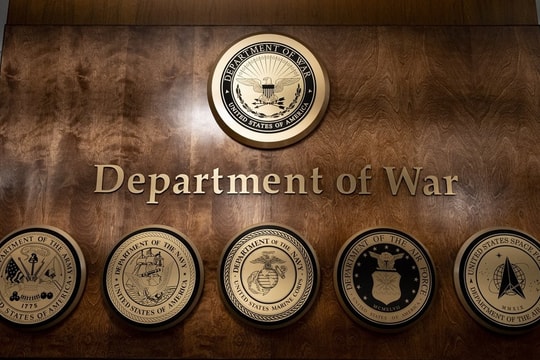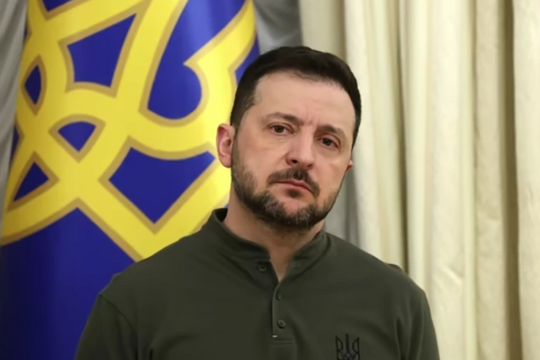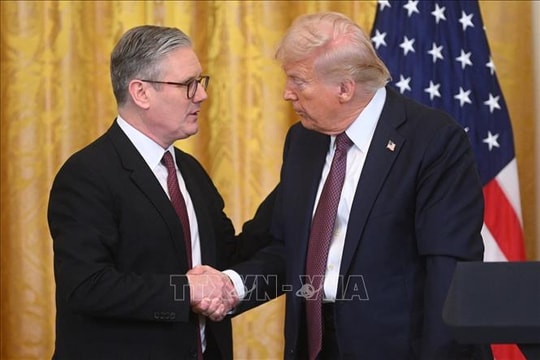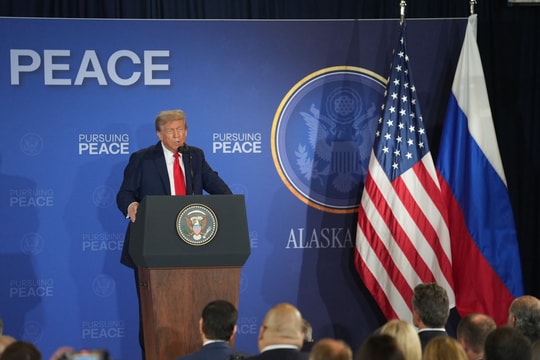Mr. Trump and 5 hot spots that could erupt into World War 3 in 2017
In 2017, Mr. Trump will have to pay attention to many “extremely dangerous” hot spots that could erupt into conflicts between the US, Russia and China.
The newly elected US President Donald Trump will take office on January 20, 2017, in a world situation that is more unstable than ever. As the head of the White House - the leader of the world's number one power, Mr. Trump will have to make every effort to eliminate the threat of escalating confrontation between countries.
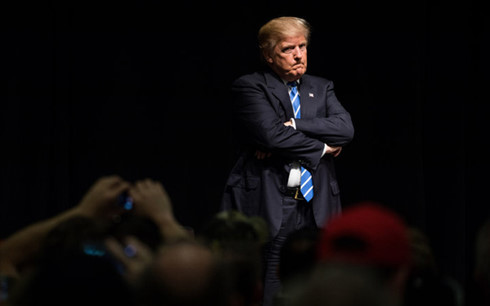 |
| US President-elect Donald Trump. (Photo: New York Times) |
According toThe National InterestIn the first months of his new tenure in the White House (in fact, perhaps even from now on), Mr. Trump must pay special attention to many "extremely dangerous" hot spots that could erupt into escalating conflicts between the US, Russia, and China.
Korean Peninsula
It is known that outgoing US President Barack Obama warned President-elect Donald Trump that policy regarding the DPRK is the first major test for his administration.
In 2016, North Korea conducted two nuclear tests on January 6 and September 9. Notably, North Korea's fifth nuclear test occurred on the 68th anniversary of its founding on September 9, a test considered the largest ever conducted by Pyongyang.
In addition, North Korea has also made significant progress in its ballistic missile technology development program toward the goal of expanding its nuclear arsenal.
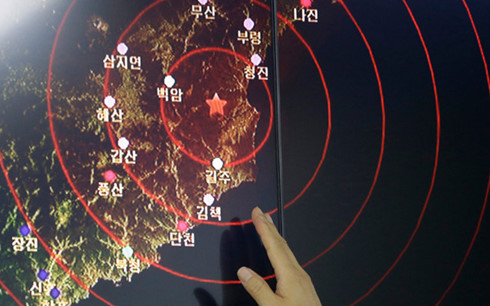 |
| North Korea conducted two nuclear tests and a series of missile launches in 2016. (Photo: AP) |
The situation on the Korean peninsula, which has always been fraught with danger, has become even more unpredictable as South Korean politics is in a state of chaos following the political scandal of South Korean President Park Geun-hye involving her close friend Choi Soon-sil.
Conflict on the Korean Peninsula could erupt in any number of ways: perhaps the US decides to stop North Korea's ballistic missile development program with a preventive strike; perhaps North Korea misinterprets US signals and decides to preemptively intercept; or perhaps political chaos on the Korean Peninsula.
According to analysts, if conflict breaks out on the Korean peninsula, it will not only be a story between the DPRK and South Korea. Remember, when the Korean War broke out in 1950, it drew in the participation of China, Russia and Japan.
Syria
The victory of the Syrian government army in Aleppo is considered the greatest victory that Syrian President Bashar Al-Assad has achieved since the civil war in Syria broke out in 2011, bringing the Syrian war to a new phase.
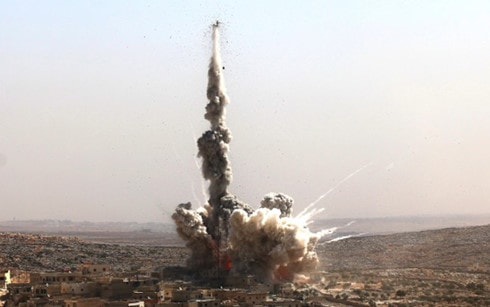 |
| The war in Syria remains a long and unending story. (Photo: Getty) |
The US has refused to intervene directly in Aleppo, instead focusing its forces on the fight against the Islamic State (IS) in Iraq. The Obama administration has not sought to confront Russia when Moscow supported Mr. Assad, and it seems the Trump administration will follow suit.
But while the most dangerous moments may have passed, US and Russian forces will continue to operate in close proximity on the Syrian battlefield. US airstrikes in Deir al-Zour killed 62 Syrian soldiers, derailing the prospects for US-Russian cooperation in Syria.
A similar event could happen to either the Syrian or US military, which could trigger a conflict due to retaliation. Furthermore, the presence of militia or terrorist groups supported by some of the countries involved could complicate the situation and increase the risk of miscalculation.
“War” in cyberspace
The United States, Russia and China are not at “war” in cyberspace, despite accusations from Washington that Moscow tried to interfere in the US presidential election or that China is always trying to steal intellectual property and technology from US companies.
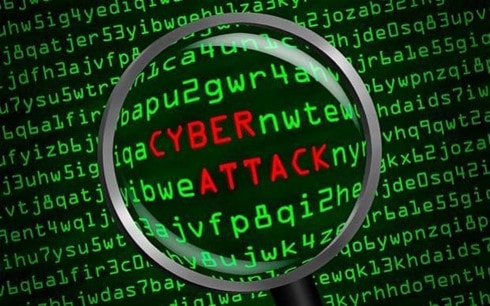 |
| Cyber attacks always pose many risks. (Photo: Telegraph) |
The US clearly feels the potential risks in cyberspace and has been increasing preventive measures to be ready to deal with what it considers provocative actions from Russia and China.
In fact, many experts disagree with the view that a serious escalation in cyberspace activities will constitute a “war”. However, it cannot be ruled out that the US, Russia, and China could fall into an “unfortunate spiral of escalation” starting from cyberspace because Washington will certainly not let Beijing and Moscow do whatever they want.
South Asia
Given what has happened, it can be seen that President-elect Donald Trump will continue to pursue the policy of former President Bush and President Obama to promote deep US-India relations. Indeed, Mr. Trump's election campaign received strong support from the Indian-origin people in the US - a force that tends to support confrontation with Pakistan.
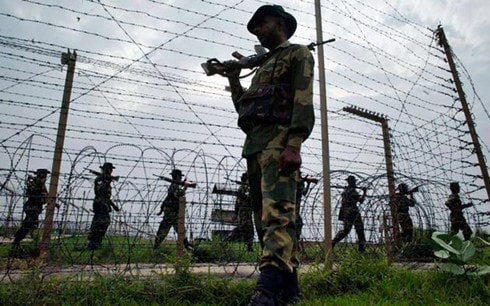 |
| The conflict in Kashmir has always been an obstacle in India-Pakistan relations. (Photo: dapd) |
However, Mr. Trump's phone call with Pakistani Prime Minister Nawaz Sharif "threw" the above assumptions into chaos.
Mr Trump appears to be keen to present himself as a mediator in the Kashmir dispute, but analysts in India and the US fear that Pakistan could misinterpret the message as a green light for the US to step up military activity in Kashmir and take other escalatory measures.
On the other hand, India may feel the need to take steps to counter Pakistan’s escalation by increasing its activities along the Line of Control (LoC). In such a scenario, if either side decides to escalate tensions, it will draw in the US and China, pushing the conflict to a new level.
Baltic Sea
According toThe National InterestPerhaps the greatest risk of conflict in 2017 lies in the Baltic region. Since his election campaign, Mr. Trump has called into question America’s commitment to NATO’s security.
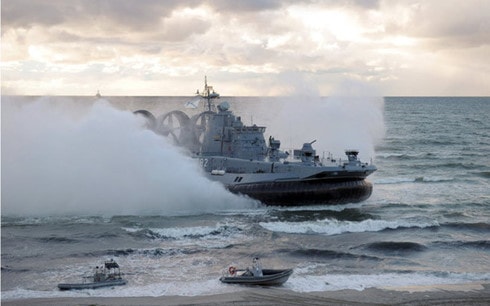 |
| NATO forces during a training exercise in the Baltic Sea. (Photo: AP) |
This may not necessarily be a negative thing, as it will encourage NATO member states to increase their own defense spending, which could ease tensions with Russia. On the other hand, it may also help improve perceptions that the US is continuing to expand its military intervention.
But the move also carries significant risks. In the short term, it increases the risk of miscalculation, as Moscow may underestimate US commitments to its Baltic security infrastructure and take steps that could provoke the US.
If this scenario were to play out, it would put America's core defense commitment to the test and could all lead to serious conflict.
The Road to World War III in 2017?
Uncertainty is the source of all the concerns. No one can grasp exactly what the administration of President-elect Donald Trump will do (neither Moscow nor even Washington) on foreign policy issues.
This forces countries to face difficult calculations of risks and opportunities. Political scientists say that misperceptions, uncertainty and disagreement always have the potential to cause conflict. In the context of the current complex world situation, Mr. Trump's advisors will have to work hard to advise the future President of the United States to avoid potential crises in the new year 2017.
According to VOV
| RELATED NEWS |
|---|

